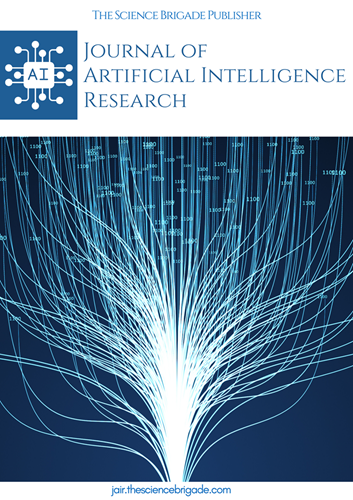Reinforcement Learning Algorithms: Conducting a Comparative Analysis of Reinforcement Learning Algorithms to Assess Their Strengths and Weaknesses
Keywords:
Reinforcement Learning, Comparative Study, Q-Learning, SARSA, Deep Q Networks, Policy Gradient, Performance Evaluation, Sample Efficiency, Algorithm Stability, Problem Domain ApplicabilityAbstract
Reinforcement Learning (RL) has emerged as a powerful paradigm in machine learning, enabling agents to learn optimal behaviors through interaction with environments. Various RL algorithms have been developed, each with unique characteristics and suitability for different applications. This paper presents a comprehensive comparative study of popular RL algorithms, including Q-Learning, SARSA, Deep Q Networks (DQN), Policy Gradient methods, and their variants. We compare these algorithms based on their performance, sample efficiency, stability, and applicability to different problem domains. Through experimental evaluations on standard RL benchmarks, we analyze the strengths and weaknesses of each algorithm, providing insights into their practical implications and areas for improvement.
References
Pargaonkar, Shravan. "A Review of Software Quality Models: A Comprehensive Analysis." Journal of Science & Technology 1.1 (2020): 40-53.
Palle, Ranadeep Reddy, and Haritha Yennapusa. "A hybrid deep learning techniques for DDoS attacks in cloud computing used in defense application."
Raparthi, Mohan, Sarath Babu Dodda, and SriHari Maruthi. "Examining the use of Artificial Intelligence to Enhance Security Measures in Computer Hardware, including the Detection of Hardware-based Vulnerabilities and Attacks." European Economic Letters (EEL) 10.1 (2020).
Pargaonkar, Shravan. "Bridging the Gap: Methodological Insights from Cognitive Science for Enhanced Requirement Gathering." Journal of Science & Technology 1.1 (2020): 61-66.
Raparthi, M., Dodda, S. B., & Maruthi, S. (2020). Examining the use of Artificial Intelligence to Enhance Security Measures in Computer Hardware, including the Detection of Hardware-based Vulnerabilities and Attacks. European Economic Letters (EEL), 10(1).
Pargaonkar, Shravan. "Future Directions and Concluding Remarks Navigating the Horizon of Software Quality Engineering." Journal of Science & Technology 1.1 (2020): 67-81.
Yennapusa, Haritha, and Ranadeep Reddy Palle. "Scholars Journal of Engineering and Technology (SJET) ISSN 2347-9523 (Print)."
Pargaonkar, S. (2020). A Review of Software Quality Models: A Comprehensive Analysis. Journal of Science & Technology, 1(1), 40-53.
Downloads
Published
How to Cite
Issue
Section
License
Copyright (c) 2021 Rajeev Ranjan

This work is licensed under a Creative Commons Attribution-NonCommercial-ShareAlike 4.0 International License.
License Terms
Ownership and Licensing:
Authors of this research paper submitted to the journal owned and operated by The Science Brigade Group retain the copyright of their work while granting the journal certain rights. Authors maintain ownership of the copyright and have granted the journal a right of first publication. Simultaneously, authors agreed to license their research papers under the Creative Commons Attribution-NonCommercial-ShareAlike 4.0 International (CC BY-NC-SA 4.0) License.
License Permissions:
Under the CC BY-NC-SA 4.0 License, others are permitted to share and adapt the work, as long as proper attribution is given to the authors and acknowledgement is made of the initial publication in the Journal. This license allows for the broad dissemination and utilization of research papers.
Additional Distribution Arrangements:
Authors are free to enter into separate contractual arrangements for the non-exclusive distribution of the journal's published version of the work. This may include posting the work to institutional repositories, publishing it in journals or books, or other forms of dissemination. In such cases, authors are requested to acknowledge the initial publication of the work in this Journal.
Online Posting:
Authors are encouraged to share their work online, including in institutional repositories, disciplinary repositories, or on their personal websites. This permission applies both prior to and during the submission process to the Journal. Online sharing enhances the visibility and accessibility of the research papers.
Responsibility and Liability:
Authors are responsible for ensuring that their research papers do not infringe upon the copyright, privacy, or other rights of any third party. The Science Brigade Publishers disclaim any liability or responsibility for any copyright infringement or violation of third-party rights in the research papers.




